The Irish Government has nominated 11 individuals to the European Commission since the country first joined the European Economic Community (ECC) in 1973.
Nine men and two women have held the role including current European Commissioner, Mairead McGuinness. All of our commissioners have been appointed through the two main political parties, Fine Gael and Fianna Fáil, with the majority (seven) hailing from the latter.

Patrick Hillery (1973-1976)
Prior to his unopposed election as the sixth president of Ireland in 1976, Clare statesman Patrick Hillery served as vice-president of the European Commission and European Commissioner for Social Affairs from 1973 to 1976.
He was nominated as Ireland’s first European Commissioner by his Fianna Fáil government after the country joined the ECC.
Hillery’s national political career began in 1951 when he was elected as TD for the Clare constituency. He held a number of ministerial roles prior to 1973 with labour, commerce and education briefs.
As European Commissioner for Social Affairs, Hillery worked on pay equality for EU women, a move that proved quite controversial at the time.
His Brussels career was ended early when a new Fine Gael–Labour coalition government was elected in 1976. Then Taoiseach Liam Cosgrave informed Hillery that he was not being re-appointed to the Commission.
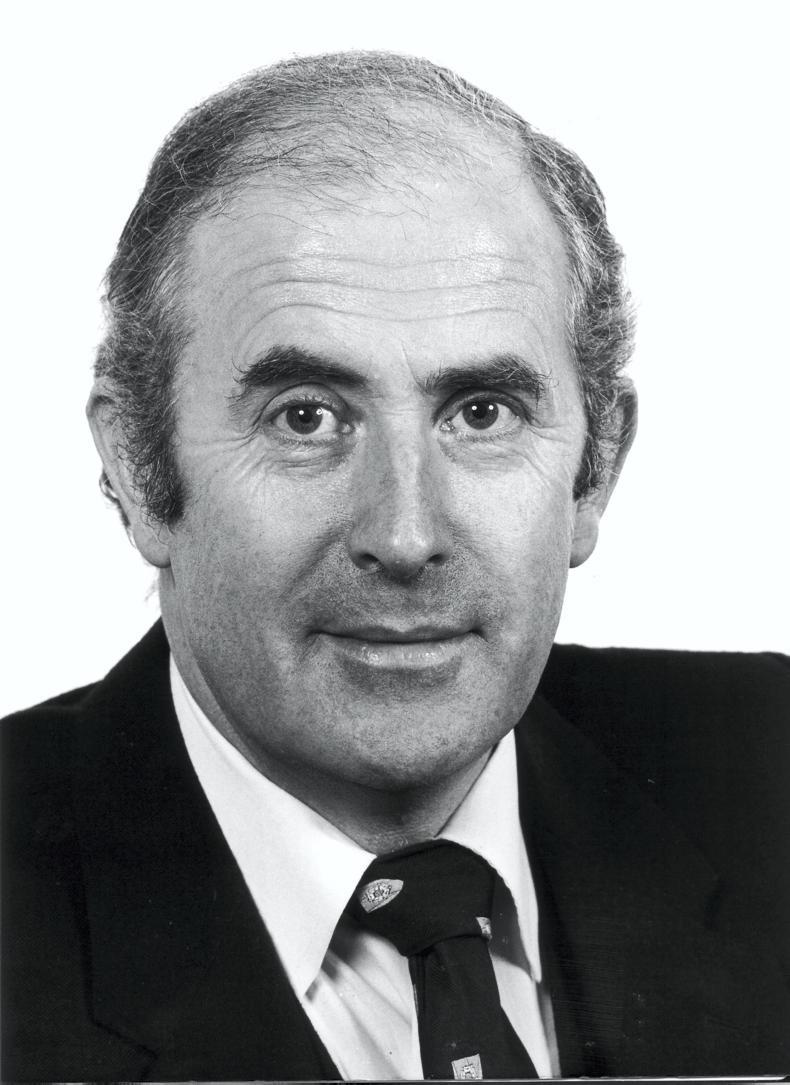
Richard Burke
(1977-1981, 1982-1985)
Fine Gael politician Richard Burke served as European Commissioner for Taxation, Consumer Affairs, Transport and Parliamentary Relations from 1977 to 1981, following his appointment by the Fine Gael–Labour coalition government at the time.
In an unusual move, Burke, who served at various stages as a Dublin South and Dublin West TD, was reappointed as Ireland’s European Commission by rival Fianna Fáil party leader and Taoiseach Charles Haughey in 1982.
The appointment came about due to the political instability in Dublin at the time and the absence of suitable and available members from within Haughey’s own party.
Becoming Ireland’s European Commissioner for the second time, Burke served as Commissioner for Interinstitutional Relations and Administration until 1985. His seniority also resulted in his nomination as a vice-president of the Commission at this time.
A teacher before entering politics, Burke was born in New York and reared in Upperchurch, Co Tipperary.
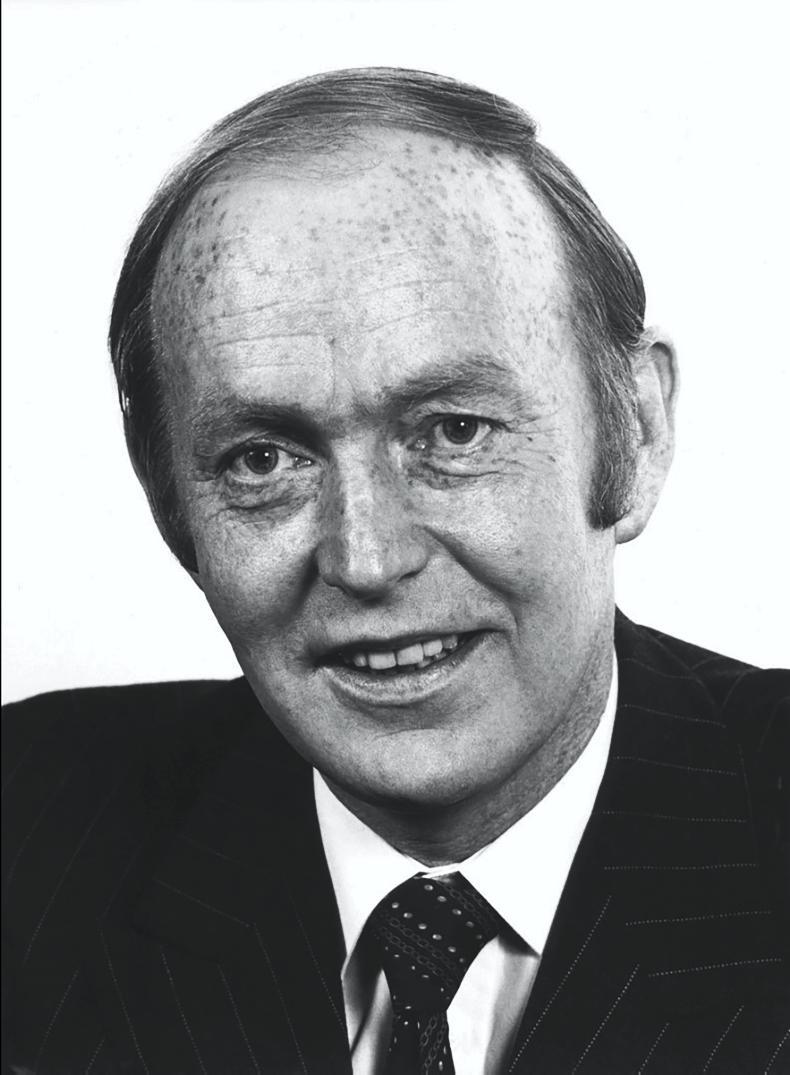
Michael O’Kennedy (1981-1982)
Formerly a Minister for Agriculture in Leinster House, Fianna Fáil’s Michael O’Kennedy served as European Commissioner for Personnel, Administration and the Statistics Office for a brief term from 1981 to 1982. Born and reared in Nenagh, Co Tipperary, O’Kennedy was elected as TD for the county in a number of elections between 1969 and 2002, serving in Dáil Éireann prior to and after his stint in Brussels.
O’Kennedy is said to have been unhappy during his work as European Commissioner and quickly sought to return to politics on home soil.
When a general election was called in February 1982, he decided to return to contest his old Dáil seat.

Peter Sutherland (1985-1989)
Peter Sutherland, a Fine Gael politician who held multiple high-profile national and international roles during his political career, served as European Commissioner for Competition between 1985 and 1989. At the age of 39, his appointment marked that of the youngest ever Commissioner in Brussels at that time.
He had responsibility for competition policy in Europe and held the Commission’s education brief for one year in 1985.
A programme now familiar to many students across Europe, Sutherland originally proposed the establishment of the university Erasmus programme that allows European students to study in other member states.
He was chair of the committee that produced the Sutherland Report on the completion of the Internal Market of the European Economic Community (EEC). While Commissioner, Sutherland worked on opening up market competition across Europe including that within the energy sector.
An influential figure in international trade talks that still impact Irish agriculture today, the Dublin native went on to become director general of the General Agreement on Tariffs and Trade (now the World Trade Organisation) in 1993.
Ray MacSharry
(1989-1993)
MacSharry was European Commissioner for Agriculture and Rural Development from 1989 to 1993.
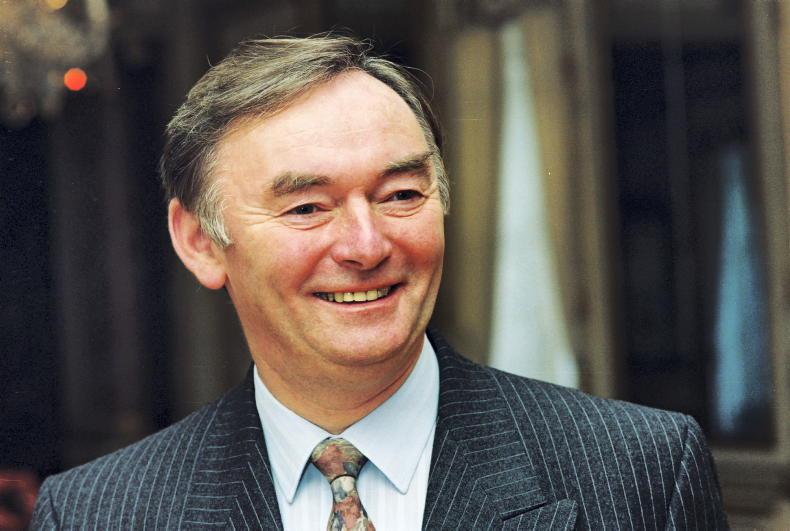
Pádraig Flynn
(1993-1999)
Former Fianna Fáil politician Pádraig Flynn served as European Commissioner for Social Affairs for one and a half terms from 1993 to 1999.
Flynn’s second term as European Commissioner ended early in September 1999, when the entire Commission resigned due to allegations of malpractice by the European Parliament. He was not reappointed to the Commission by the Irish Government and retired from politics completely.
Before his Brussels career, Flynn was a Mayo West TD and held various ministerial roles including that of Minister for the Environment from 1987 to 1991.
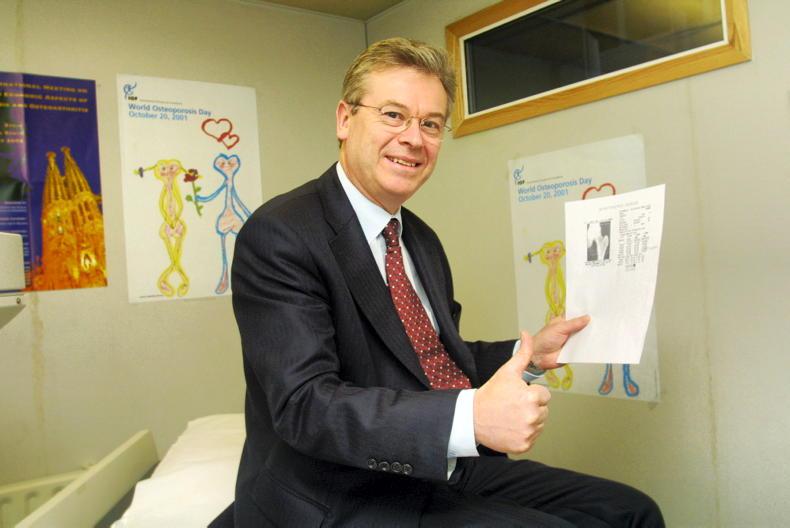
Fianna Fáil politician David Byrne was appointed to Brussels by the then Fianna Fáil Taoiseach Bertie Ahern in 1999. He served as European Commissioner for Health and Consumer Protection from 1999 to 2004.
A barrister by profession, Byrne had become Attorney General of Ireland in the Fianna Fáil-Progressive Democrats coalition government in 1997.
In this role, he was one of the negotiators of the Good Friday Agreement in April 1998 and is understood to have drafted and overseen the constitutional amendments required by the agreement and which were approved by referendum in May 1998.
During his work as a Commissioner, Byrne is said to have driven European tobacco control legislation.
Under his leadership, the European Union also created the European Centre for Disease Prevention and Control in 2004.
Following his term as Commissioner, Byrne acted as WHO Special Envoy on the revision of the International Health Regulations for a six-month period following a series of outbreaks of SARS and avian influenza.
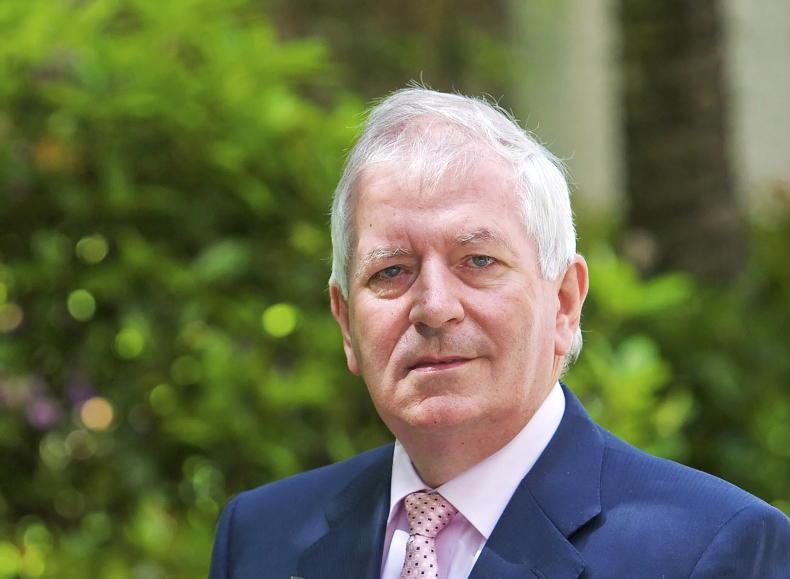
Charlie McCreevy (2004-2010)
Previously a Fianna Fáil government minister since the early 1990s and first elected a TD in 1977, Charlie McCreevy was selected by then Taoiseach Bertie Ahern to replace David Byrne as Ireland’s European Commissioner in 2004. The former accountant was born and reared in Sallins, Co Kildare.
McCreevy served as Commissioner for Internal Market and Services under the Barroso Commissions until 2010.
During his time in Brussels, McCreevy faced criticism from colleagues in the European Parliament when Ireland first rejected the adoption of the Lisbon Treaty in June 2008.
While he had endorsed a vote in support of Treaty adoption, McCreevy made comments on it during the referendum campaign in Ireland which suggested that he had not fully read the document.
Several MEPs called for his resignation over the matter.
However, after a renewed campaign and second referendum, the Lisbon Treaty was ratified in Ireland in October 2009, three months before McCreevy finished as Commissioner.
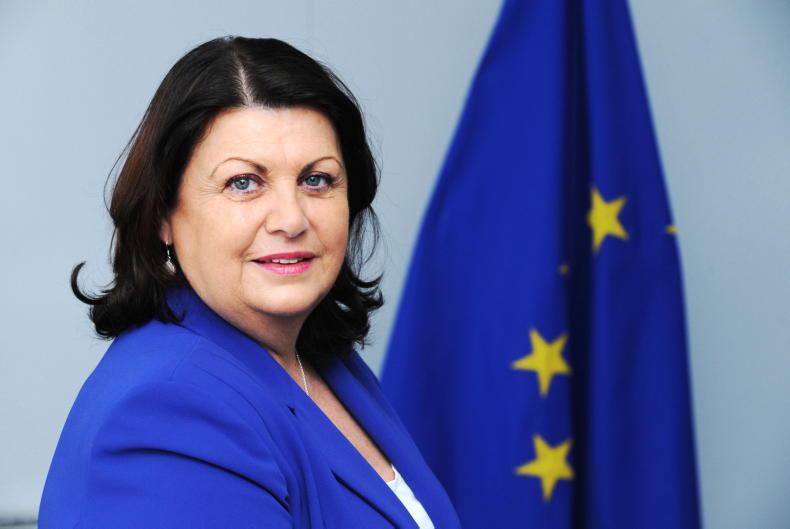
Máire Geoghegan-Quinn
(2010-2014)
Ireland’s first female nominee to the European Commission, Galway woman Máire Geoghegan-Quinn served as European Commissioner for Research, Innovation and Science from 2010 to 2014.
Prior to her nomination as Ireland’s Commissioner by the then Taoiseach Brian Cowen, Geoghegan-Quinn had a lengthy career in Dáil Éireann.
First elected a TD in 1975 for the Galway West constituency, in 1979 the Fianna Fáil politician became the first woman to hold an Irish cabinet post since Countess Markievicz (1919-1921) as Minister for the Gaeltacht in the Charles Haughey-led government.
Over the following 15 years, Geoghegan-Quinn held ministerial roles in equality and law reform, justice, tourism, transport and communications.
As Commissioner for Research, Innovation and Science, Geoghegan-Quinn was primarily responsible for research within the EU and improving the conditions for those undertaking research activities.
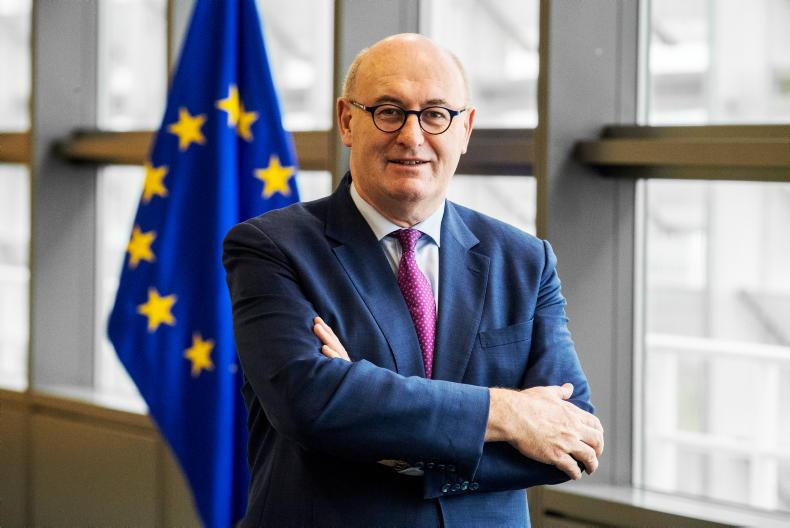
Hogan was European Commissioner for Agriculture and Rural Development from 2014 to 2019 and Commissioner for Trade from 2019 to 2020.
Mairead McGuinness (2020-present)
Louth native Mairead McGuinness has been European Commissioner for Financial Stability, Financial Services and the Capital Markets Union since her nomination by the current Government to the Commission in October 2020.
An MEP from 2004 to 2020, the Fine Gael politician is well known within the Irish agricultural community.
In 1980, McGuinness was the first female graduate of University College Dublin’s (UCD) Bachelor of Science degree in agricultural economics.
Her early career saw her hold several roles in media including as a researcher for the The Late Late Show and as a reporter with the Irish Farmers Journal.
McGuinness went on to present RTÉ’s Ear to the Ground and Celebrity Farm and became editor of the Farming Independent.
While an MEP, McGuinness served on several European Parliament committees including the Committee on Agriculture and Rural Development, the Parliament Intergroup on the Welfare and Conservation of Animals and as a substitute member of the Committee on the Environment, Public Health and Food Safety.
In July 2014, she was first elected vice-president of the European Parliament where her role involved oversight of the parliament’s information policy, press and citizens relations.
McGuinness was again elected to this position by her fellow MEPs in 2019.
McGuinness’s current Commission role is responsible for ensuring that EU financial markets are properly regulated and supervised so that they are stable, competitive and transparent.
The Irish Government has nominated 11 individuals to the European Commission since the country first joined the European Economic Community (ECC) in 1973.
Nine men and two women have held the role including current European Commissioner, Mairead McGuinness. All of our commissioners have been appointed through the two main political parties, Fine Gael and Fianna Fáil, with the majority (seven) hailing from the latter.

Patrick Hillery (1973-1976)
Prior to his unopposed election as the sixth president of Ireland in 1976, Clare statesman Patrick Hillery served as vice-president of the European Commission and European Commissioner for Social Affairs from 1973 to 1976.
He was nominated as Ireland’s first European Commissioner by his Fianna Fáil government after the country joined the ECC.
Hillery’s national political career began in 1951 when he was elected as TD for the Clare constituency. He held a number of ministerial roles prior to 1973 with labour, commerce and education briefs.
As European Commissioner for Social Affairs, Hillery worked on pay equality for EU women, a move that proved quite controversial at the time.
His Brussels career was ended early when a new Fine Gael–Labour coalition government was elected in 1976. Then Taoiseach Liam Cosgrave informed Hillery that he was not being re-appointed to the Commission.

Richard Burke
(1977-1981, 1982-1985)
Fine Gael politician Richard Burke served as European Commissioner for Taxation, Consumer Affairs, Transport and Parliamentary Relations from 1977 to 1981, following his appointment by the Fine Gael–Labour coalition government at the time.
In an unusual move, Burke, who served at various stages as a Dublin South and Dublin West TD, was reappointed as Ireland’s European Commission by rival Fianna Fáil party leader and Taoiseach Charles Haughey in 1982.
The appointment came about due to the political instability in Dublin at the time and the absence of suitable and available members from within Haughey’s own party.
Becoming Ireland’s European Commissioner for the second time, Burke served as Commissioner for Interinstitutional Relations and Administration until 1985. His seniority also resulted in his nomination as a vice-president of the Commission at this time.
A teacher before entering politics, Burke was born in New York and reared in Upperchurch, Co Tipperary.

Michael O’Kennedy (1981-1982)
Formerly a Minister for Agriculture in Leinster House, Fianna Fáil’s Michael O’Kennedy served as European Commissioner for Personnel, Administration and the Statistics Office for a brief term from 1981 to 1982. Born and reared in Nenagh, Co Tipperary, O’Kennedy was elected as TD for the county in a number of elections between 1969 and 2002, serving in Dáil Éireann prior to and after his stint in Brussels.
O’Kennedy is said to have been unhappy during his work as European Commissioner and quickly sought to return to politics on home soil.
When a general election was called in February 1982, he decided to return to contest his old Dáil seat.

Peter Sutherland (1985-1989)
Peter Sutherland, a Fine Gael politician who held multiple high-profile national and international roles during his political career, served as European Commissioner for Competition between 1985 and 1989. At the age of 39, his appointment marked that of the youngest ever Commissioner in Brussels at that time.
He had responsibility for competition policy in Europe and held the Commission’s education brief for one year in 1985.
A programme now familiar to many students across Europe, Sutherland originally proposed the establishment of the university Erasmus programme that allows European students to study in other member states.
He was chair of the committee that produced the Sutherland Report on the completion of the Internal Market of the European Economic Community (EEC). While Commissioner, Sutherland worked on opening up market competition across Europe including that within the energy sector.
An influential figure in international trade talks that still impact Irish agriculture today, the Dublin native went on to become director general of the General Agreement on Tariffs and Trade (now the World Trade Organisation) in 1993.
Ray MacSharry
(1989-1993)
MacSharry was European Commissioner for Agriculture and Rural Development from 1989 to 1993.

Pádraig Flynn
(1993-1999)
Former Fianna Fáil politician Pádraig Flynn served as European Commissioner for Social Affairs for one and a half terms from 1993 to 1999.
Flynn’s second term as European Commissioner ended early in September 1999, when the entire Commission resigned due to allegations of malpractice by the European Parliament. He was not reappointed to the Commission by the Irish Government and retired from politics completely.
Before his Brussels career, Flynn was a Mayo West TD and held various ministerial roles including that of Minister for the Environment from 1987 to 1991.

Fianna Fáil politician David Byrne was appointed to Brussels by the then Fianna Fáil Taoiseach Bertie Ahern in 1999. He served as European Commissioner for Health and Consumer Protection from 1999 to 2004.
A barrister by profession, Byrne had become Attorney General of Ireland in the Fianna Fáil-Progressive Democrats coalition government in 1997.
In this role, he was one of the negotiators of the Good Friday Agreement in April 1998 and is understood to have drafted and overseen the constitutional amendments required by the agreement and which were approved by referendum in May 1998.
During his work as a Commissioner, Byrne is said to have driven European tobacco control legislation.
Under his leadership, the European Union also created the European Centre for Disease Prevention and Control in 2004.
Following his term as Commissioner, Byrne acted as WHO Special Envoy on the revision of the International Health Regulations for a six-month period following a series of outbreaks of SARS and avian influenza.

Charlie McCreevy (2004-2010)
Previously a Fianna Fáil government minister since the early 1990s and first elected a TD in 1977, Charlie McCreevy was selected by then Taoiseach Bertie Ahern to replace David Byrne as Ireland’s European Commissioner in 2004. The former accountant was born and reared in Sallins, Co Kildare.
McCreevy served as Commissioner for Internal Market and Services under the Barroso Commissions until 2010.
During his time in Brussels, McCreevy faced criticism from colleagues in the European Parliament when Ireland first rejected the adoption of the Lisbon Treaty in June 2008.
While he had endorsed a vote in support of Treaty adoption, McCreevy made comments on it during the referendum campaign in Ireland which suggested that he had not fully read the document.
Several MEPs called for his resignation over the matter.
However, after a renewed campaign and second referendum, the Lisbon Treaty was ratified in Ireland in October 2009, three months before McCreevy finished as Commissioner.

Máire Geoghegan-Quinn
(2010-2014)
Ireland’s first female nominee to the European Commission, Galway woman Máire Geoghegan-Quinn served as European Commissioner for Research, Innovation and Science from 2010 to 2014.
Prior to her nomination as Ireland’s Commissioner by the then Taoiseach Brian Cowen, Geoghegan-Quinn had a lengthy career in Dáil Éireann.
First elected a TD in 1975 for the Galway West constituency, in 1979 the Fianna Fáil politician became the first woman to hold an Irish cabinet post since Countess Markievicz (1919-1921) as Minister for the Gaeltacht in the Charles Haughey-led government.
Over the following 15 years, Geoghegan-Quinn held ministerial roles in equality and law reform, justice, tourism, transport and communications.
As Commissioner for Research, Innovation and Science, Geoghegan-Quinn was primarily responsible for research within the EU and improving the conditions for those undertaking research activities.

Hogan was European Commissioner for Agriculture and Rural Development from 2014 to 2019 and Commissioner for Trade from 2019 to 2020.
Mairead McGuinness (2020-present)
Louth native Mairead McGuinness has been European Commissioner for Financial Stability, Financial Services and the Capital Markets Union since her nomination by the current Government to the Commission in October 2020.
An MEP from 2004 to 2020, the Fine Gael politician is well known within the Irish agricultural community.
In 1980, McGuinness was the first female graduate of University College Dublin’s (UCD) Bachelor of Science degree in agricultural economics.
Her early career saw her hold several roles in media including as a researcher for the The Late Late Show and as a reporter with the Irish Farmers Journal.
McGuinness went on to present RTÉ’s Ear to the Ground and Celebrity Farm and became editor of the Farming Independent.
While an MEP, McGuinness served on several European Parliament committees including the Committee on Agriculture and Rural Development, the Parliament Intergroup on the Welfare and Conservation of Animals and as a substitute member of the Committee on the Environment, Public Health and Food Safety.
In July 2014, she was first elected vice-president of the European Parliament where her role involved oversight of the parliament’s information policy, press and citizens relations.
McGuinness was again elected to this position by her fellow MEPs in 2019.
McGuinness’s current Commission role is responsible for ensuring that EU financial markets are properly regulated and supervised so that they are stable, competitive and transparent.














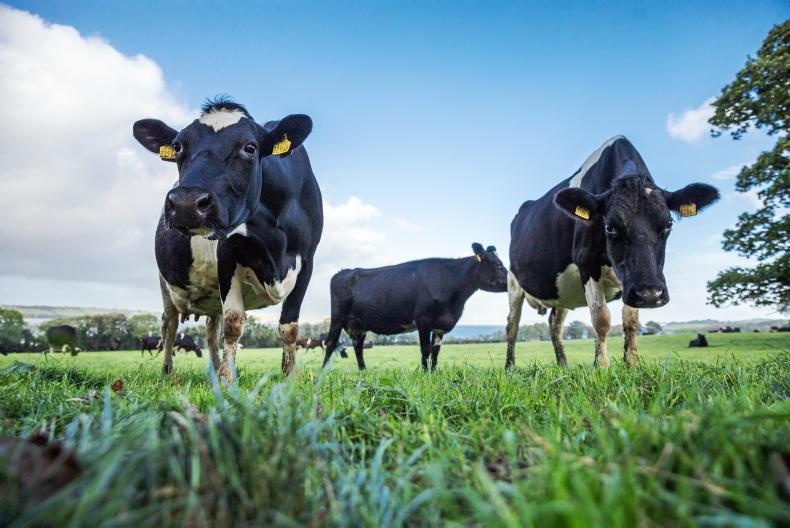

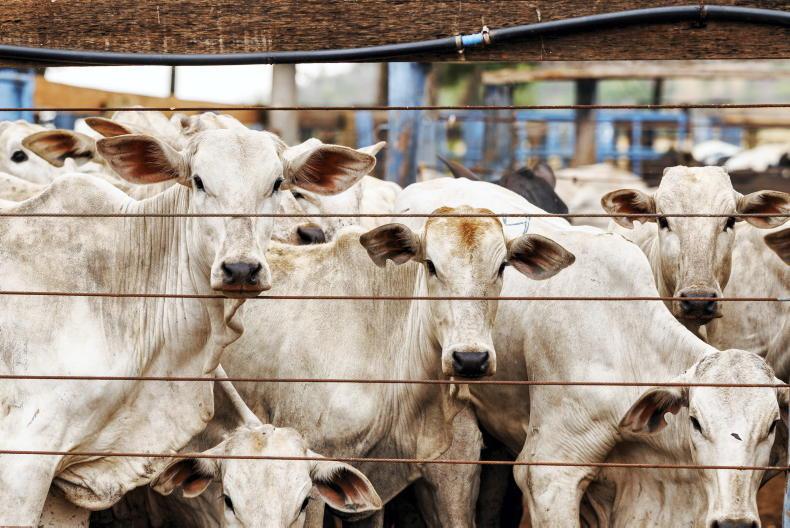
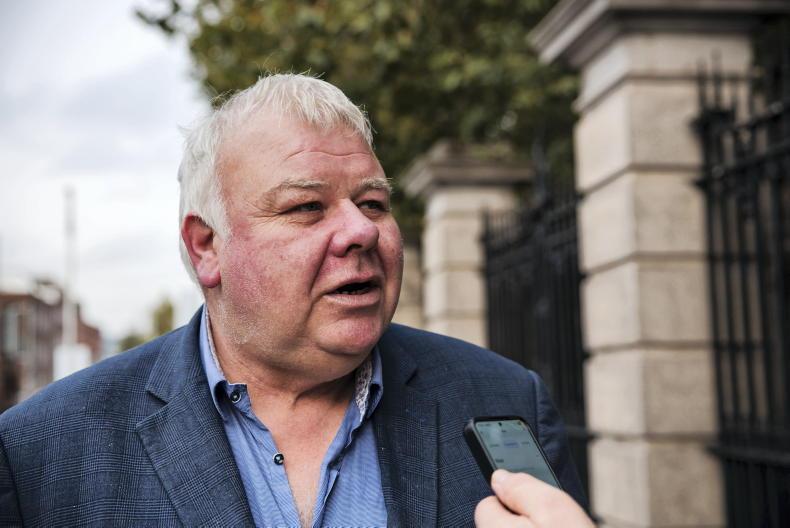
SHARING OPTIONS